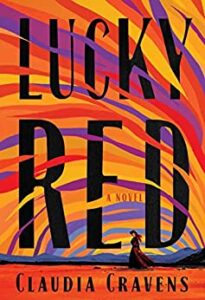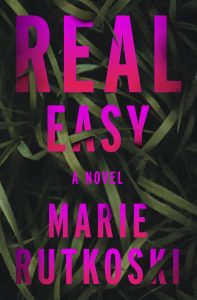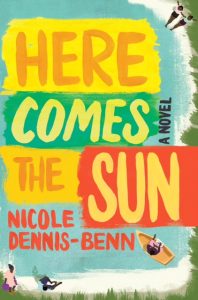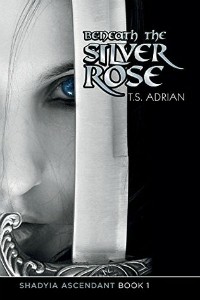This queer Western did not disappoint. I tore through this tale that is equal parts cowgirl adventure, gritty coming of age, steamy F/F romance, and revenge heist. This was a ride that only ramped up as I kept reading. If you’re looking for a getaway in these last weeks of summer, this book will transport you to the wild, wild west.
Lucky Red follows a scrappy orphan, Bridget, as she matures into what every little girl truly wants to be when she grows up: a revenge-seeking gunslinger. Even at her young age of sixteen she is simmering with rage, a key ingredient for this career path. She’s resentful of her alcoholic father who never seems to be able to step up, leaving her to practically raise herself amid the chaos his choices cause. And when he’s killed by a snakebite as they try to cross the Kansas prairie, she is left truly on her own. Starving and exhausted, she is relieved to make it to Dodge City, where she is soon recruited to work at the Buffalo Queen, the only brothel in town run by women.
She finds that she likes life as a “sporting woman”: she has good food, a nice place to live, consistent pay, and a group of women who in their own quirky ways have become her found family. Things are feeling stable until Spartan Lee, the legendary ex-bandit female gunfighter in the region, rides into town. Bridget is smitten at first sight (and I was, too—need I say more than queer ex-bandit?). Spartan Lee takes an interest in Bridget and it’s head over heels fast, stereotypically uhauling their way into Bridget’s brothel room. Things get steamy but just when you think the book has turned into a romance, it takes a hard left at revenge. Faced with double-crosses, vengeance, and blinding love, Bridget has to decide what kind of hero she is going to be in her own story.
I’ll also add that for a book that takes place in the 1800’s, it is refreshingly free of queer shame. The queer characters are not tortured but are delightfully “just queer.” Their gayness is not their plotline but just another characteristic of who they are. And while they aren’t openly out and do face some quiet judgment from some of their peers, they’re not persecuted.
This book felt like the best parts of an adventure film montage but make it gay: horse chases, forbidden kisses in the alley, shootouts, sipping whiskey in a saloon. I finished this in just two sittings and was so immersed that when I closed the book I stood up pointing finger guns and wishing I, too, was a cowgirl bandit. If you’re like me though, and as a rule-following nerd you couldn’t be further from a shady gunslinger, then I highly recommend this escape into an alternate world. Stay wild, y’all.
Content warnings: sexual assault, gun violence, murder, death of a parent, alcoholism, adult/minor relationship, period-typical homophobia
Natalie (she/her) is honestly shocked to find herself as a voracious reader these days – that certainly wasn’t the case until she discovered the amazing world of queer books! Now she’s always devouring at least one book, as long as it’s gay. She will be forever grateful for how queer characters kept her company through her own #gaypanic and now on the other side of that, she loves soaking up queer pasts, presents and futures across all genres. Find more reviews on her Bookstagram!





